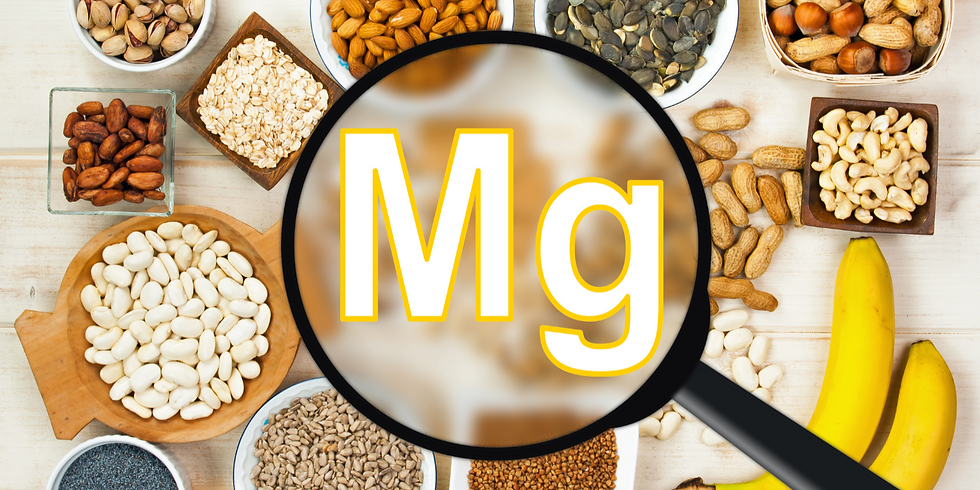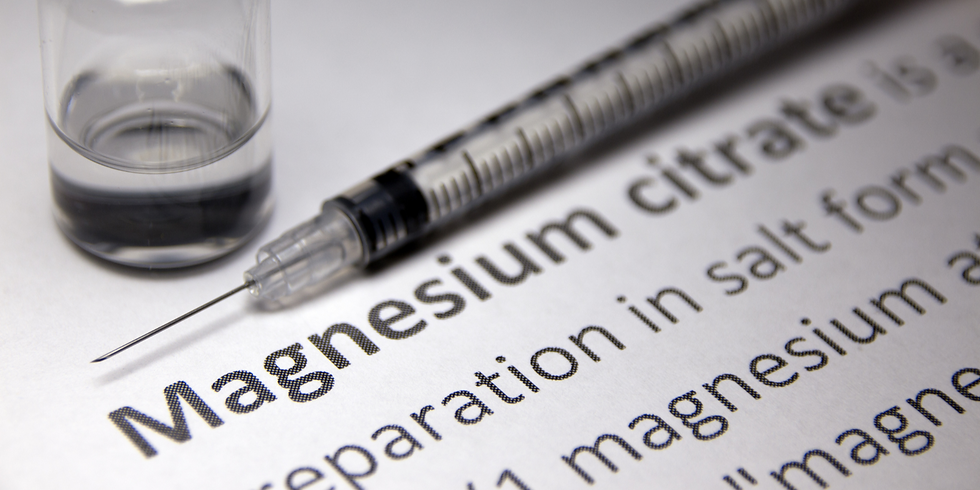When to Take Digestive Enzymes?
- Megan Hilbert, MS, RDN

- Aug 16, 2023
- 7 min read
Updated: Nov 28, 2023
Video Transcript:
You may have heard of digestive enzymes before and the potential benefits that you can have from taking these supplements. But a lot of people have questions about digestive enzymes, for example. What are they, and what should I be taking them?
And so today we're gonna discuss a lot of those questions and I'll help answer them for you so that you know more about what these enzymes are, how can they help the body, and also when you should take them for best results.
Hi there, I'm Megan. I'm a Registered dietitian nutritionist with Flusso Nutrients where we provide supplement education and provide high-quality professional supplements. So the world of supplements is a little bit easier to navigate for you.
So as always, make sure to check with your main nutrition-literate healthcare provider before starting anything new as we can't possibly know your full medical history before making a personal recommendation.
So without further ado, let's dive into today's topic, which is digestive enzymes.
What are Digestive Enzymes?
Digestive enzymes are essential for the proper functioning of your digestive system.
They're responsible for helping your body break down various foods you eat into smaller, more manageable molecules so that your body can absorb them and then, of course, utilize those for energy, cell repair, growth, all that good stuff.
Without them, you'd have a very hard time digesting and absorbing these essential nutrients. And so this is why these enzymes are so important and why there's been a recent surge of interest in digestive enzyme supplements in recent years.
So these supplements are believed to help support optimal digestion and improve various digestive conditions. But it can be hard to know if these will be beneficial, right?
If you are somebody who maybe lacks these enzymes and could benefit from supplementation.
So we're gonna talk about how to choose the right supplements for you.
If you do feel you need a little extra boost from digestive enzyme supplements, and we'll also talk about the various types of enzymes as well as what conditions they can be helpful for.
Different types of Digestive Enzymes
So there are five main types of digestive enzymes that our body produces and that you can also find in supplement form. Let's go over these really quickly.
So the first one is Proteases, which are the enzymes that break down proteins into amino acids, also known as the building blocks of protein. And this can help things like tissue repair and hormone production.
Next, we have Amylases, and these are responsible for breaking down carbohydrates into starches and simple sugars. So our body has quick sources of energy.
Next, there are Lipases, which help break down fats into either glycerol or fatty acids. And these are also important for energy production. And then cell membrane maintenance.
Then we have Cellulase. And this help break down cellulose, which is a type of fiber found in plant cell walls. This is especially important to help break down fiber-rich foods.
And this is not something that's naturally found in the human body, but it's found in some digestive enzyme supplements, especially for people who do have a harder time breaking down fibers.
Lastly, there are Lactases, and this is essential for breaking down lactose, which is the sugar found in milk products. So a lot of people have issue with this. It's a very common reason for why lactose intolerance is so prevalent.
And so for individuals who have a hard time breaking down dairy lactase enzymes can be especially helpful to supplement with experience less digestive comfort.
Now, along with lactose intolerance, there are also other conditions where digestive enzymes have found to be really helpful.
So a very common condition that a lot of patients with gut complaints tend to deal with is called IBS, also known as irritable bowel syndrome. And for a lot of people there is a lot of pain and bloating and changes in bowel habits with this particular condition.
And so some studies do suggest that taking digestive enzymes may help reduce IBS symptoms by improving, um, digestion and reducing some inflammation in the gut.
And so for individuals with IBS, often a blend of proteases, amylase, and lipases can help break down a wide range of food particles, especially those that have a little bit more plant material, a little bit more carbohydrates that people with IBS tend to not digest as well, also known as FODMAPs.
A lot of individuals with IBS also tend to deal with lactose intolerance, and so a lactase enzyme tends to be really beneficial for those who do struggle to digest dairy products as well.
Another condition that tends to benefit from digestive enzyme supplementation is something called leaky gut, also known as intestinal permeability.
And this is a condition that occurs when the lining of the small intestine becomes damaged, allowing some undigested food particles, certain toxins may bacteria to enter the bloodstream, and this can produce some immune and inflammatory reactions that lead to various health issues and symptoms.
And so digestive enzymes for leaky gut can help improve digestion and reduce inflammation, by repairing the intestinal lining and breaking down any food particles that may be able to enter the bloodstream and contribute to inflammation.
So these supplements often contain a blend of enzymes targeting proteins and carbohydrates and fats, especially proteins and fats since those take a little bit more energy for our body to digest as well as additional enzymes like peptidase to break down gluten and casein which can also aggravate leaky gut symptoms in some individuals.
SIBO is another condition that digestive enzymes have been known to be quite helpful with, and this is because this is a condition where an excessive number of bacteria are growing in the small intestine, and this can cause really unpleasant symptoms like gas, bloating, abdominal pain, and things like this.
So one potential treatment and one potential way to reduce these symptoms for people with SIBO is to take digestive enzymes to help break down food particles more effectively, which helps prevent the bacteria from feeding on these undigested food particles which produce gas.
So when looking for digestive enzymes to help with sibo, as usual, the typical enzymes that target breaking down proteins, carbohydrates, and fats can be really beneficial as well as enzymes like Cellulase and Xylanase, which help break down specific fibers that can exacerbate SIBO symptoms and really feed the bacteria that tend to characterize SIBO.
Now that we've discussed more about digestive enzymes, what they are and what conditions they can help with, I wanna talk about how to choose the right supplement for you if you feel that this is something that may help support your digestive symptoms.
How to choose the right supplement for you?
So the most important thing to start off with is identifying your needs and what it is you're looking for from this supplement. So determining what types of enzymes you'll need based on your diet and also the digestive issues that you might have.
For example, if you're somebody who struggles with digesting fats, looking for a supplement with a high concentration of lipase is really important.
So for example, on the Flusso website, we have a supplement called Lipo-Complex, which is specifically formulated to help support fat digestion.
It also contains other ingredients like ox bile, which have been shown to be really effective at helping stimulate bile production and also breaking down fats in that regard.
So knowing the specific symptoms that you're looking to target is really important to help make the decision on what supplements to purchase next. It's also really important to check the enzyme sources.
So some enzymes are derived from animal sources. For example, I mentioned ox bile, which is an animal-derived supplement and others are derived from things like plants and fungi.
So if you're looking for something vegan-friendly or you are not necessarily concerned with making sure your supplements are plant-based, those options are available for you as well.
Also on the Flusso website, we have a vegetarian option for those of you who are looking to avoid animal products.
Now, if you aren't somebody who's looking to target really specific symptoms, but you want more generalized support for your digestive help, it's important to look for a broad-spectrum blend.
And so this is a blend that's gonna contain lots of different enzymes, like I mentioned before, the proteases, the lipases, the amylase, things like that, which makes it more versatile and effective at breaking down a wide range of foods.
Some supplements also contain a lot of other beneficial ingredients that can help support your digestion like probiotics, prebiotics, and even herbs that can further support gut health.
So again, if you're looking for more of a broad spectrum supplement, these are the things that it's important to look for that generalized digestive health.
When to take digestive enzymes?
Now, last but certainly not least, one of the main questions that I get as a registered dietitian is when to take digestive enzymes, right? And this is one of the most important things to consider when you're focusing on supplementation.
And so the timing of when you take these can be super crucial to help you achieve best results. And in general, it's recommended to take your digestive enzyme supplements just before a meal or during a meal to maximize the benefits that you're gonna get.
If you take digestive enzymes after you eat the enzymes might not be present, and able to work as on the food in your digestive system to help break down those food particles more effectively and of course, help your body absorb those nutrients.
If you forget to take an enzyme before your meal, it's okay. It's better than not taking them at all.
But of course it is really important to prioritize if you wanna make sure you're getting enough bang for your buck and getting enough help from supplements to maybe set a timer or focus on ways to help you remember taking your supplements before you eat.
So if you yourself are interested in trying digestive enzymes, there will be links to professional quality digestive enzyme blends that are for a variety of conditions for people who are looking for vegetarian or vegan options or options for different health conditions.
Check out the high-quality supplements:
Digestive Enzyme Blend: https://flussonutrients.nutridyn.com/digestive-vegetarian
You can discuss these with a healthcare provider who is literate in nutrition, and can help you choose the supplement that is best for you.
So thank you so much for joining me today. We will see you in our next blog/video, and please leave a comment down below if you have any questions or anything else that you'd like to share with us.
Bye-bye.






Comments